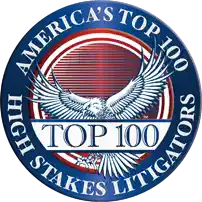Traffic violations can have negative consequences and may even lead to legal proceedings. Before you start driving on the road, it is extremely important that you are aware of traffic laws and regulations. Violating traffic laws can result in a traffic ticket, and you may have to pay a hefty fine or worse for failing to follow the rules.
An experienced Philadelphia car accident lawyers may be helpful if you are violating traffic laws or a traffic ticket has been issued against you. They will present a strong defensive strategy in your favor and will prevent your license suspension.
If you are planning to move to or travel within another state, you should be cognizant of the laws of the state in which you are operating a motor vehicle. Ignorance is not a valid excuse for violating a law. If you are not equipped with knowledge of traffic rules and regulations in the state you are driving, you could wind up paying a significant fine, regardless of whether you had no intention to violate the law.
We have created this guide to answer frequently asked questions about traffic tickets; however, there is no substitute for talking to an experienced traffic ticket lawyer who can help you handle a ticket. They know steps that can be taken for different scenarios, and can help you manage the situation with better information than going about it alone.
What is a traffic violation?
Before we talk about traffic tickets, we should explain what a traffic violation is. State laws can vary in classifying traffic offenses. Offenses can be generally categorized according to the severity of the offense involved and whether there were any injuries, death, or property damages. Traffic laws are typically divided into two categories: infractions and crimes.
- An infraction is considered the least severe offense and usually does not fall under the category of crime. If you have received a ticket, most likely you have committed an infraction. For instance, failure to stop or yield may fall under this category. One should note that infraction violations are less severe than felonies and misdemeanors.
- Criminal violations – The other category includes criminal violations that give rise to misdemeanors and felonies. These include more serious violations of the law. The laws and penalties often vary from state to state to a greater degree than infractions. It is important to understand that failure to comply with traffic laws can result in misdemeanor and felony traffic violations even if you are traveling in another state only temporarily.
A criminal violation often includes more serious situations, such as dangerous driving, reckless endangerment, or driving under the influence. These incidents may be considered more severe than an infraction because the potential consequences are often much worse. Therefore, those who violate these important laws may have to face serious charges for doing so.
You should be familiar with the laws of the state where you live and regularly travel in. In addition, criminal violations are often classified into two primary categories – moving violations and non-moving violations.
Moving violations are often more severe and, as the name would suggest, occur when the vehicle is in motion. People who are charged with a moving violation can have their licenses suspended. In more serious situations or for repeat offenses, a license may be permanently revoked.
On the other hand, non-moving violations occur when the vehicle is not moving. Fines for non-moving violations may be comparatively less and may not be reflected on the driving record. You should keep these things in mind and be aware of the laws followed in your state. A driving ticket lawyer will understand the different types of conditions involved in these types of violations and can help you take the right steps to avoid future hassles.
Types of traffic tickets
We have listed some of the common types of traffic tickets that drivers may encounter.
- Speeding – Speeding is one of the most common reasons for a police officer to stop you and give you a ticket. It is critical to follow the posted speed limit and drive at a safe speed given the circumstances. Different areas have different speed limits. Therefore, it is important to watch for the posted speed limit and drive safely.
- Distracted driving – Many people are addicted to their mobile phones and use them while driving. Drivers should resist engaging in other activities while driving. Distracted driving can have negative consequences and lead to critical injuries or death. Focus on driving and minimize the number of restrictions while sharing the road.
- Driving without a valid license – Many drivers are charged with driving without a valid license. Sometimes the license is simply expired. Other times, people forget to carry their license when getting into their vehicles. In either case, it is illegal to drive without carrying a proper license. Therefore, vehicle owners should avoid driving without a license.
- Running a red light or a stop sign – Another common traffic ticket is when drivers fail to stop at a stop sign or for a traffic light. Following traffic laws is mandatory and helps reduce the risks of injury and death. To prevent accidents, keep an eye on the road and follow all the laws.
- Leaving the scene of an accident- Some people involved in accidents are afraid of getting into trouble, so they leave the scene. Leaving the site of an accident can cause you a lot of legal trouble. You can be charged with a crime and it may hurt your case if a civil lawsuit is brought against you. Therefore, you should stay at the site and begin collecting evidence to protect yourself.
These are some of the most common traffic tickets you may encounter. If you have any legal issues, you should consider consulting a Lawyer to assist you. Once you discuss all the details with a lawyer, they can tell you the ways to handle the case.






